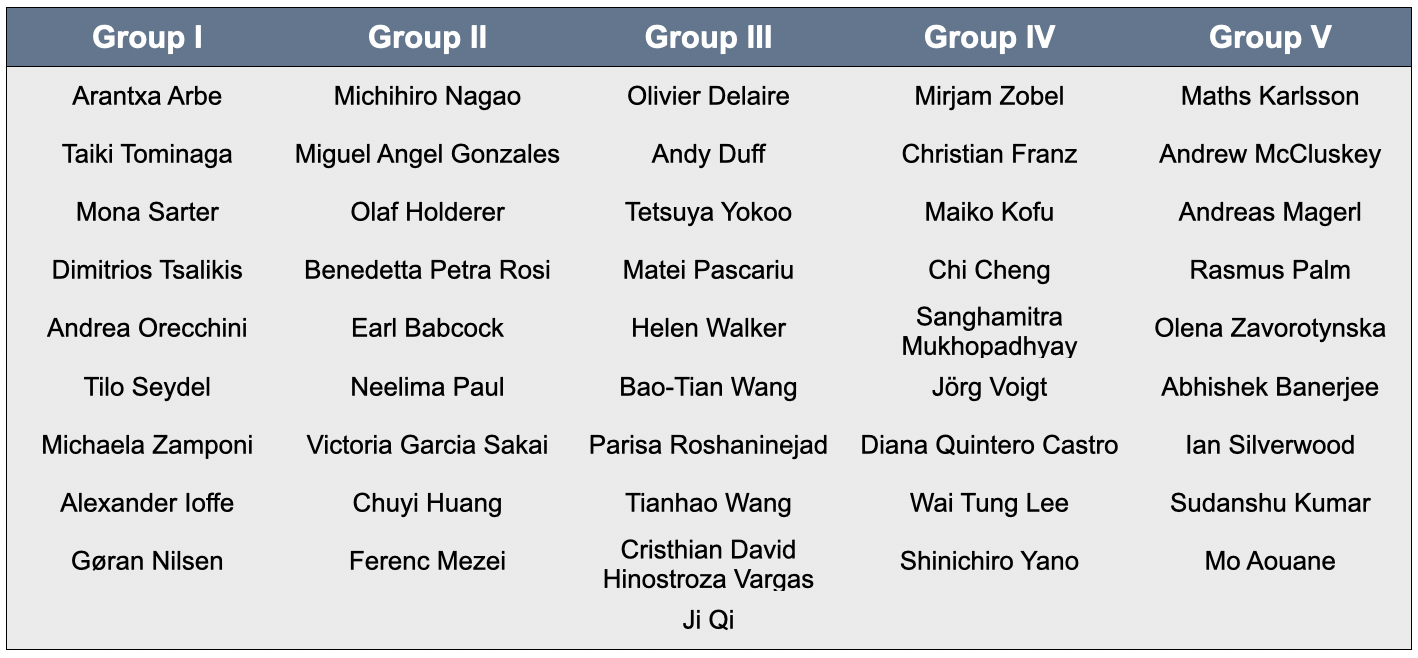Group I - liquids, soft matter, and biophysics
Group II - liquids, soft matter, and biophysics
Group III - hard condensed matter (battery materials, magnetism, barocalorics)
Group IV - hard condensed matter (magnetism, functional materials)
Group V - hard condensed matter (hydrogen, catalysis, other functional materials)

- Discussion time:
- 02/07: 15:50-16:30
- 03/07: 14:30-15:00
- 04/07: 11:20-12:00
- Coffee breaks and lunch have been made long to facilitate further discussion
- Discussion space is also available in the poster room or in the bar (Strandbaren)
- For the final session, it would be nice for each group to briefly (~3-4 mins) summarize their discussions. For this, please nominate a speaker
Suggested topics
- What are your priorities for future instrumentation?
- How would you rank the importance (e.g. on a scale 1-5) of count rate, Q-range and resolution, E-range and resolution, signal to noise, sample environment…?
- Have you used polarized neutrons in your science?
- If so, what extra information did you obtain, and how important were polarized neutrons to solving your scientific problem?
- If not, how do you expect polarized neutrons would benefit your science?
- Are there any current technical obstacles preventing you from using polarization?
- How do you typically approach data analysis?
- What standard of data analysis is required for you to be convinced of a result?
- Are there any data analysis methods you would like to try, but are currently unable to?
- What could be done to make these methods more accessible?
- Do you use simulations (e.g. MD, DFT) in your work?
- If so, and you are an experimentalist, how do they benefit your work?
- How accessible are these methods to you, and what can be done to make calculations more comparable with measured data?
- Conversely, if you work with simulations, what kind of feedback do you require from experiments or experimentalists?
- If so, and you are an experimentalist, how do they benefit your work?

